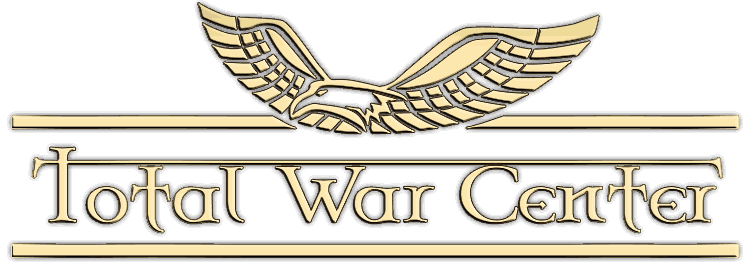 Re: Lesson number 5
Re: Lesson number 5
Part 2
Italian pronouns
Italian possessive pronouns
Italian possessive pronouns are identical to possessive adjectives. They replace the possessed object and must always be preceded by a definite article or a preposition + definite article. They’re conjugated according to gender and number.
They are:
Mio / mia / miei / mie
Adoro il tuo stereo. Il mio è vecchio.
“I love your stereo. Mine is old.”
Tuo / tua / tuoi / tue
Le mie nuove scarpe da trekking sono perfette. Come vanno le tue?
“My new trekking shoes are perfect. How are yours going?”
Suo / sua / suoi / sue
La mia valigia è stata finalmente trovata, ma della sua ancora non si sa nulla.
“My luggage was finally found, but we still don’t know anything about his.”
Nostro / nostra / nostri / nostre
Tuo figlio adora il basket, mentre i nostri preferiscono il calcio.
“Your son loves basketball, while ours prefers football.”
Vostro / vostra / vostri / vostre
Il mio cane è un pastore tedesco, e il vostro?
“My dog is a German shepherd, and yours?”
Loro
Il mio lavoro mi lascia molto tempo libero, mentre il loro no.
“My job gives me a lot of free time, while theirs does not.”
Italian reflexive pronouns
Reflexive pronouns are used when the subject of a sentence is also the object. There are a lot of very common reflexive verbs in Italian, and they can be a bit confusing. Anyway, the Italian reflexive pronouns are:
Mi (“Myself”)
Mi sto facendo la doccia.
“I’m taking a shower.”
Ti (“Yourself”)
Ti sei lavato le mani?
“Did you wash your hands?”
Si (“Himself, Herself, Themselves”)
Si è vestito in fretta ed è uscito.
“He dressed up quickly and got out.”
Ci (“Ourself”)
Io e Antonio ci amiamo molto.
“Antonio and I love each other very much.”
Vi (“Yourself”, plural)
Oggi vi siete svegliate molto presto, come mai?
“Today you got up very early, why?”
Italian interrogative and exclamatory pronouns
nterrogative and exclamatory pronouns are used to form questions or exclamations. In Italian, they are:
Chi (“Who”)
Chi è l’uomo con cui parla Simone?
“Who is the man Simone is talking to?”
Che cosa / Cosa / Che (“What”). All of these options are synonyms.
Cos’è successo?
“What happened?”
Quanto / quanta / quanti / quante (“How much” but also “So much” in exclamations)
Quanto mi manchi!
“I miss you so much!”
Quale / quali (“Which one”)
Tra pizza e pasta, quale preferisci?
“Between pizza and pasta, which one do you prefer?”
Italian indefinite pronouns
Indefinite pronouns are used to indicate something or someone in general. The most common Italian indefinite pronouns are:
Alcuno / alcuna / alcuni / alcune (“Some”)
A: Ti sono piaciute le opere in mostra?
B: Alcune mi sono piaciute, ma non tutte.
A: “Did you like the artworks on display?”
B: “Some I liked, but not all of them.”
Molto / molta / molti / molte (“Many, a lot”)
A: Hai fame?
B: Molta!
A: “Are you hungry?”
B: “A lot!”
Poco / poca / pochi / poche (“Few”)
A: C’era molta gente al concerto?
B: No, poca.
A: “Were there many people at the concert?”
B: “No, not much.”
Tanto / tanta / tanti / tante (“Many”)
Tanti sono venuti alla manifestazione, nonostante il freddo.
“Many went to the demonstration, despite the cold.”
Troppo / troppa / troppi / troppe (“Too much, too many”)
Troppi non sono tornati dalla guerra.
“Too many didn’t come back from the war.”
Tutto / tutta / tutti / tutte (“All, everyone”)
Siamo arrivati tutti in ritardo.
“We’ve all arrived late.”
Uno / una (“One”)
A: Hai un cellulare?
B: Ne ho uno, ma è vecchio.
A: “Do you have a mobile phone?”
B: “I have one, but it’s old.”
Qualcuno / qualcuna (“Someone, anyone”)
Qualcuno sa dirmi dov’è Dario?
“Could anyone tell me where Dario is?”
Ciascuno / ciascuna (“Everyone, each one”)
Ciascuno di noi ha un compito.
“Each one of us has a task.”
Ognuno / ognuna (“Everyone, each one”)
Ognuno deve fare la sua parte.
“Everyone has to do their part.”
Nessuno / nessuna (“No one, any”)
Nessuno sa perché è successo.
“No one knows why it happened.”
Sono andata a cercare funghi nel bosco, ma non ne ho trovato nessuno.
“I went looking for mushrooms in the forest, but I didn’t find any.”
Italian relative pronouns
Relative pronouns connect a sentence with a subordinate clause. The Italian relative pronouns are:
Che (replaces a subject or direct object)
La donna che sta parlando con Leo è il mio capo.
“The woman who is talking with Leo is my boss.”
Chi (“The person who, the people who, whoever”)
Chi è stato?
“Who did it?”
Cui (replaces an indirect object)
La ragazza di cui ti ho parlato sta entrando nella stanza proprio adesso.
“The girl I told you about is entering the room right now.”
Il quale / la quale / i quali / le quali (same as Cui)
La persona per la quale lavoro si chiama Mario Rossi.
“The person I work for is called Mario Rossi.”


































 Reply With Quote
Reply With Quote




